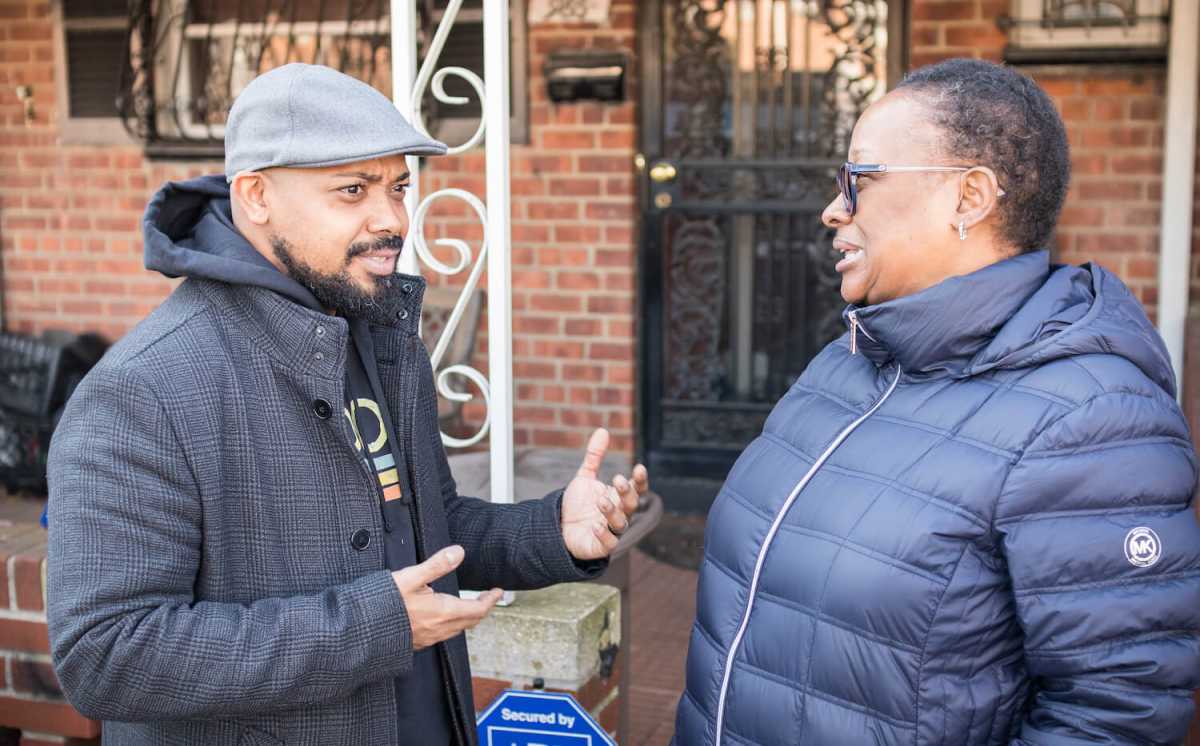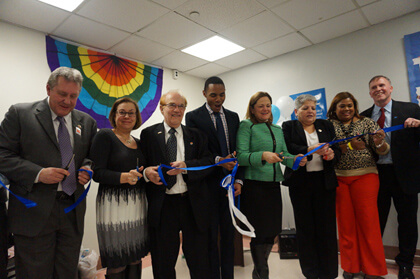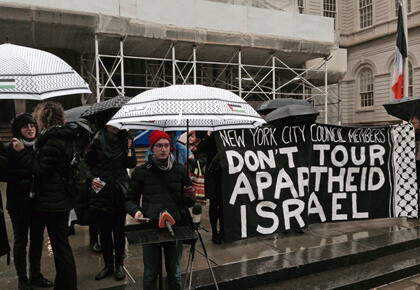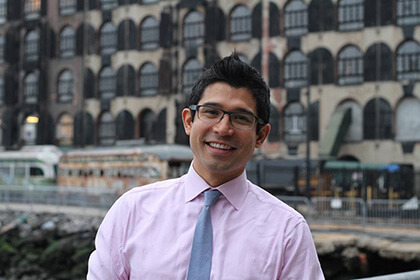Wilfredo Florentino, an out gay senior grants manager for the NAACP and a former City Council aide, is joining the mix of queer candidates running for City Council in 2021.
A resident of Brooklyn’s East New York section, Florentino is aiming to succeed term-limited Councilmember Inez Barron in the 42nd District, which also includes New Lots, Remsen Village, Spring Creek, and Starrett City. According to the New York City Campaign Finance Board, Florentino is, to this point, the only declared candidate running in that race.
Florentino is banking on his involvement in the local community to help catapult him to elective office. He serves as chair of the Transportation Committee for Community Board 5, launched a theater company with his husband — “the only theater company in East New York,” he said — and is a board member on his local homeowners association, among other posts.
“If I get one weeknight a week at home, it’s a lot,” Florentino said.
Florentino, who lives with his husband, Kareem Nemley, and their two-year-old foster child, identifies as a gay Afro-Latinx man. In discussing his identity as both a racial and sexual minority, Florentino pointed to the lack of diversity in the City Council — specifically the underrepresentation of transgender and non-binary individuals and people of color. There has never been an out transgender or non-binary member of the Council. Women occupy only 12 of the body’s 51 seats.
“I shouldn’t have to fight twice as hard as others, but I need to, and that’s just a reality,” Florentino said. “We need to have a voice and have a seat at the table.”
As it stands, there are no guarantees that LGBTQ people will occupy any seats at that table after the current crop of councilmembers leave office. All five gay city councilmembers — including Brooklyn’s lone out gay lawmaker, Carlos Menchaca — are prevented from running for re-election due to term limits.
Florentino, however, is among a growing list of 2021 hopefuls striving to maintain a voice for queer folks as well as people of color in city politics. His experience in local politics includes a stint working under Councilmember Diana Ayala, who occupies the Bronx/ Manhattan seat held through 2017 by former Council Speaker Melissa Mark-Viverito.
But Florentino’s public service work has also extended beyond the confines of the five boroughs. He served in the military from 2004 until 2012, which was during and after the Don’t Ask, Don’t Tell era when service members were forced to stay closeted or get fired. Of course, the progress made with the repeal of Don’t Ask, Don’t Tell was reversed in part when President Donald Trump implemented a new discriminatory policy targeting transgender service members, which the Obama administration had moved to welcome into the military during its final months.
“[When I joined the military] I was not in the closet, so to have to force yourself back into the closet at your place of employment — which was the government of the United States — it hurt, and was challenging for a lot of us,” Florentino recalled.
That chapter of his career, however, is now well in the rear view mirror, and Florentino is focused on elevating widely held concerns within his community, including gentrification and access to public transportation. Despite the need for improvements to public transportation, Florentino noted, a key barrier to progress is transparency. Community boards, he explained, are often left out of the conversation on important policy choices until late in the process.
In the area of criminal justice, Florentino did not mince words. He echoed the concerns of advocates who were infuriated that the City Council voted to replace Rikers Island with borough-based jails.
“The compromise that was negotiated was unacceptable,” Florentino said. “I would have been at the table advocating against it. It’s unfortunate.”
Among other criminal justice initiatives, Florentino said he is a supporter of the growing movement to decriminalize sex work, which disproportionately affects transgender women of color. That movement has especially taken off in New York City, but has become a point of focus among state legislators from diverse regions.
Florentino also voiced warnings about housing insecurity and gentrification, but he offers a unique perspective on the issue. It is his view that the rhetoric surrounding housing woes in the city is centered exclusively on those who rent and, as a result, ends up excluding those who seek to purchase property.
“We are only creating a limited amount of affordable housing units,” he said. “But the conversation is never about affordable home ownership.”
When asked whether he would be rejecting real estate cash like many other candidates who rail against gentrification, Florentino did not directly respond with a clear yes or no. He would only say, “To date, our campaign has been very clear we are not taking money from corporate PACs or special interests.” When pressed further, he again repeated that same formulation.
Florentino pointed out that it could be difficult to raise money in his district, given the economic challenges many residents face.
“To have to go up to 75 neighbors and ask for $10 is an easy conversation in many other communities,” he said. “In the 42nd District, it is extremely challenging.”
Even with the city’s new matching funds program, which encourages grassroots fundraising and is aimed at leveling the playing field by giving more candidates the financial means to compete, there are hurdles that Florentino will have to clear. But for now, he has time on his side: The Democratic primary for the seat is not until June of next year, giving him plenty of opportunity to make his case to the people of the 42nd District.
“The district is one that is rich in history and rich in culture,” Florentino said. “We have been carved out and we need our voices to be heard. Our campaign is aiming to be that voice.”





































